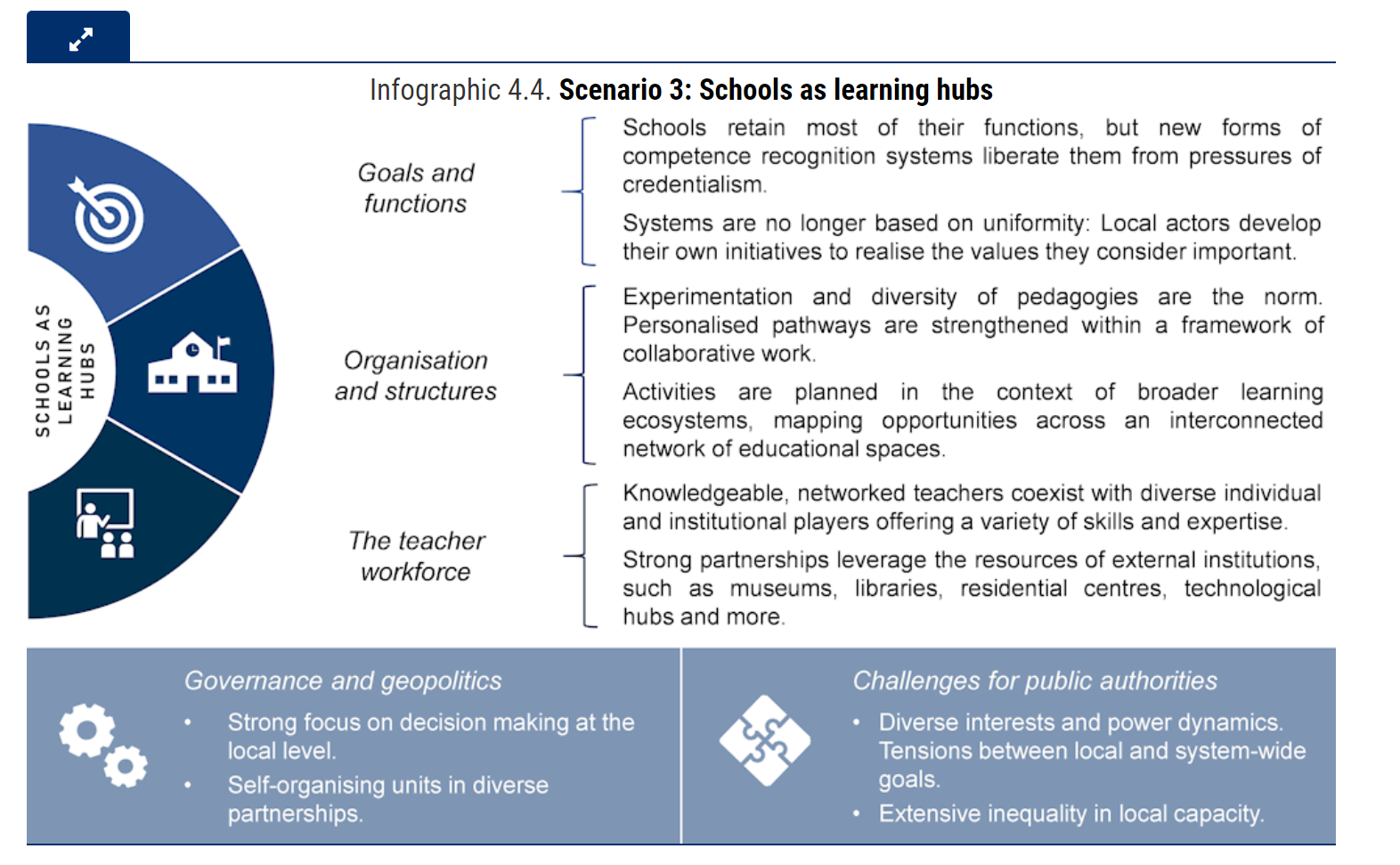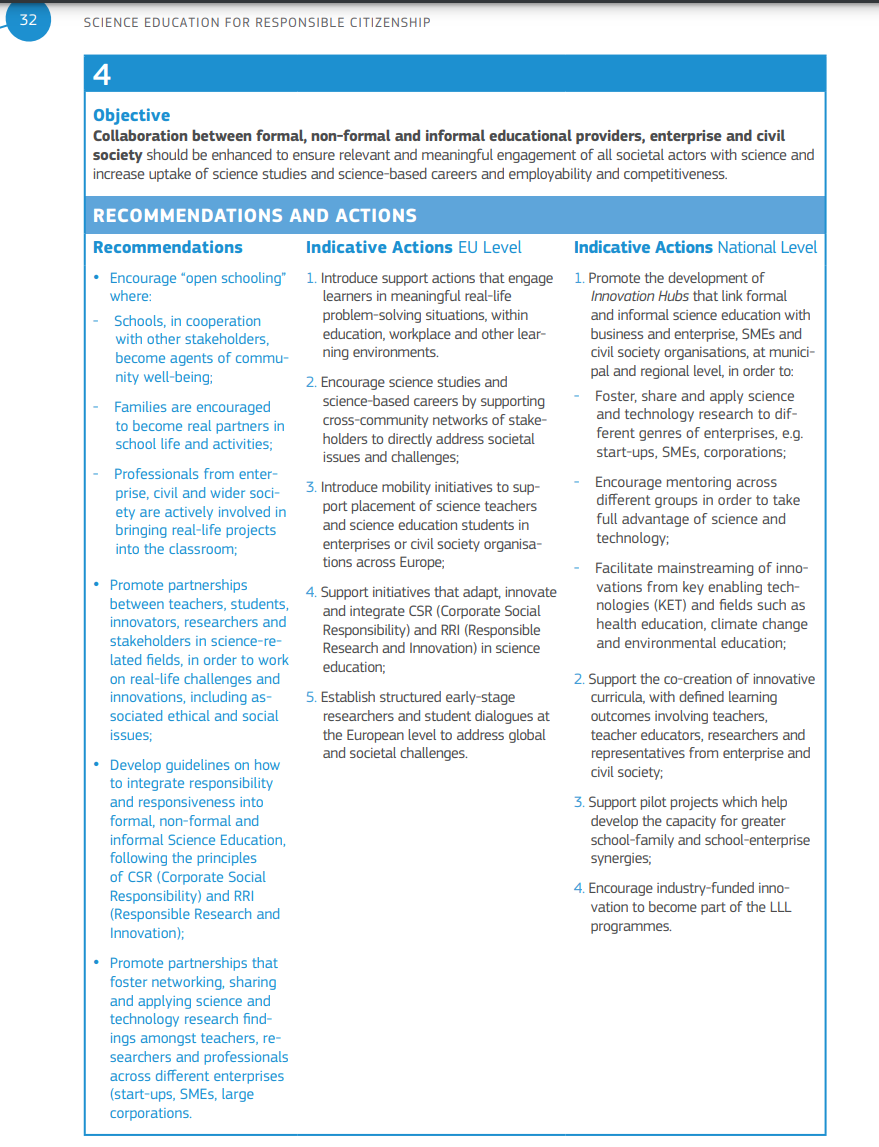The Educational Policy Framework
Open schooling comes from a bottom-up interest from single schools and educational centers interested in pedagogical innovation, but is also slowly supported by top-down institutional reccomendations and documents. International and European organizations have indeed showed in the last 10 years, the importance for a school reforms that goes in the direction of open schooling.
Already in 2004 the OECD’s “Re‐Schooling” scenario – horizon 2020- was envisaging schools as:
“Core Social Centres”: recognition of school’s as having a collective and community tasks. Increasing the socialisation goals and schools in communities, for improving the shared responsibilities between schools and other community bodies, sources of expertise, and institutions of further and continuing education, shaping not conflicting with high teacher professionalism".
The European Commission 2015, Science education for responsible citizenship: report to the European Commission of the expert group on science education has a strong emphasis on Open Schooling. The report indeed encourages:
"Collaboration between formal, non-formal and informal educational providers, enterprise and civil society should be enhanced
to ensure relevant and meaningful engagement of all societal actors with science and increase uptake of science studies and science-based careers to improve employability and competitiveness".
Moreover, the document encourages “open schooling” where
- Schools, in cooperation with other stakeholders, become an agent of community well-being;
- Families are encouraged to become real partners in school life and activities;
- Professionals from enterprise, civil and wider society are actively involved in bringing real-life projects into the classroom.
In order to achieve so, it proposes the following recommendations and actions for the EU members:
Finally, the UNESCO, 2015, Rethinking education: towards a global common good (2015) also looks at the importance of creating "networks of learning spaces" , in the consideration that "what we need is a more fluid approach to learning as a continuum, in which schooling and formal education institutions interact more closely with other less formalized educational experiences from early childhood throughout life".



No Comments